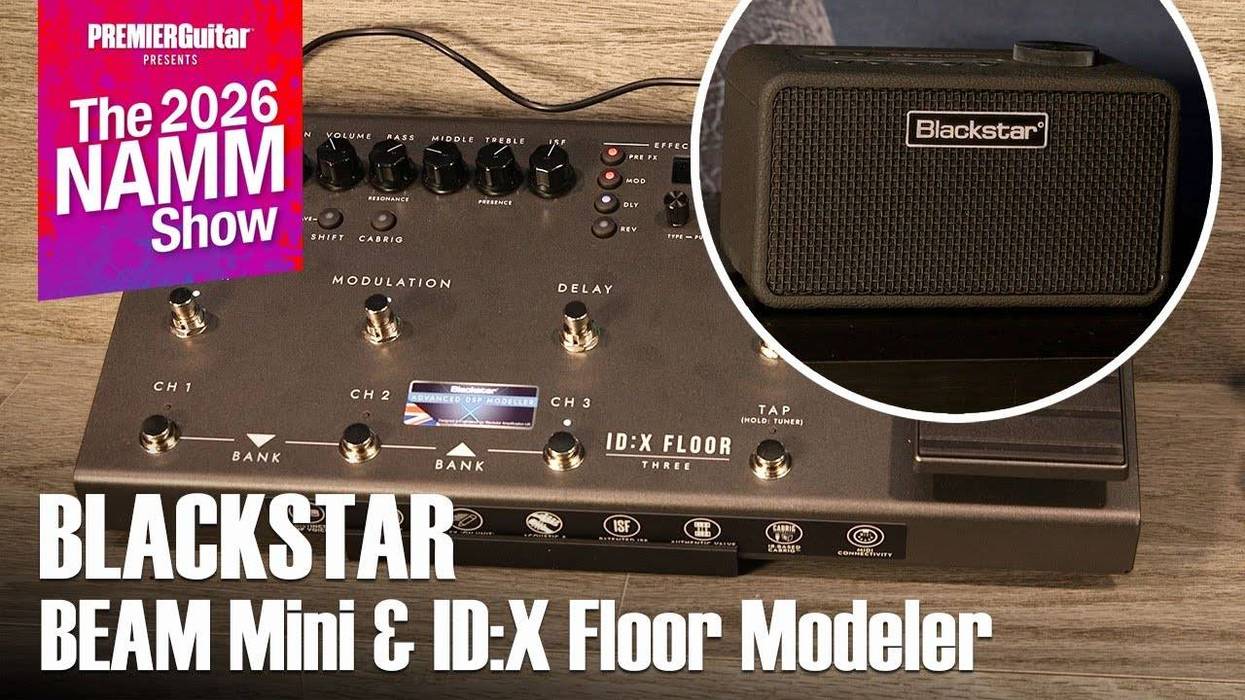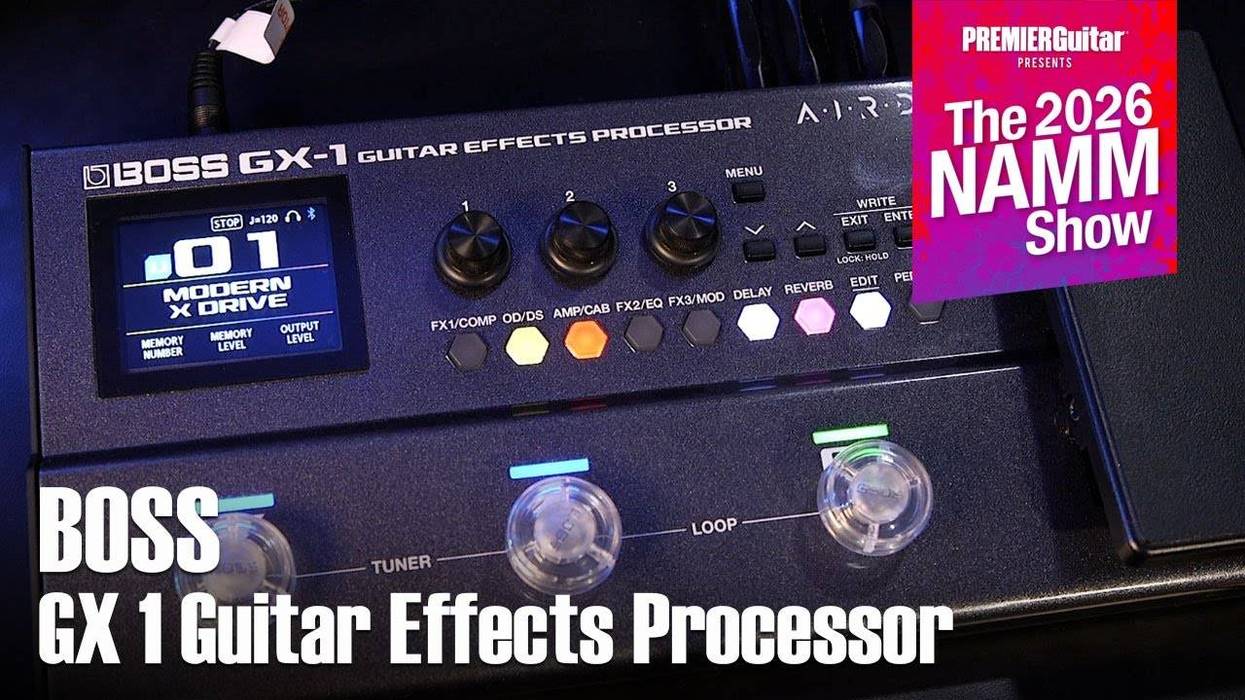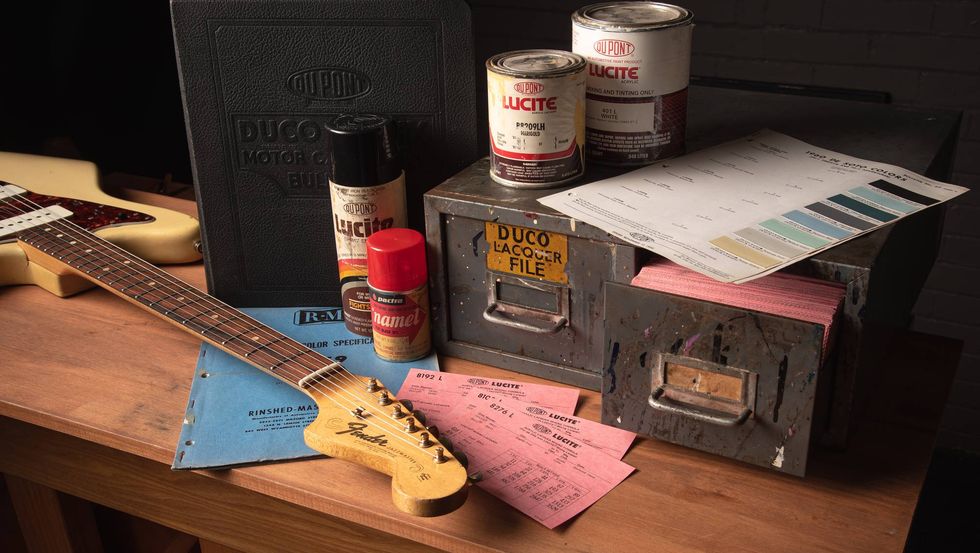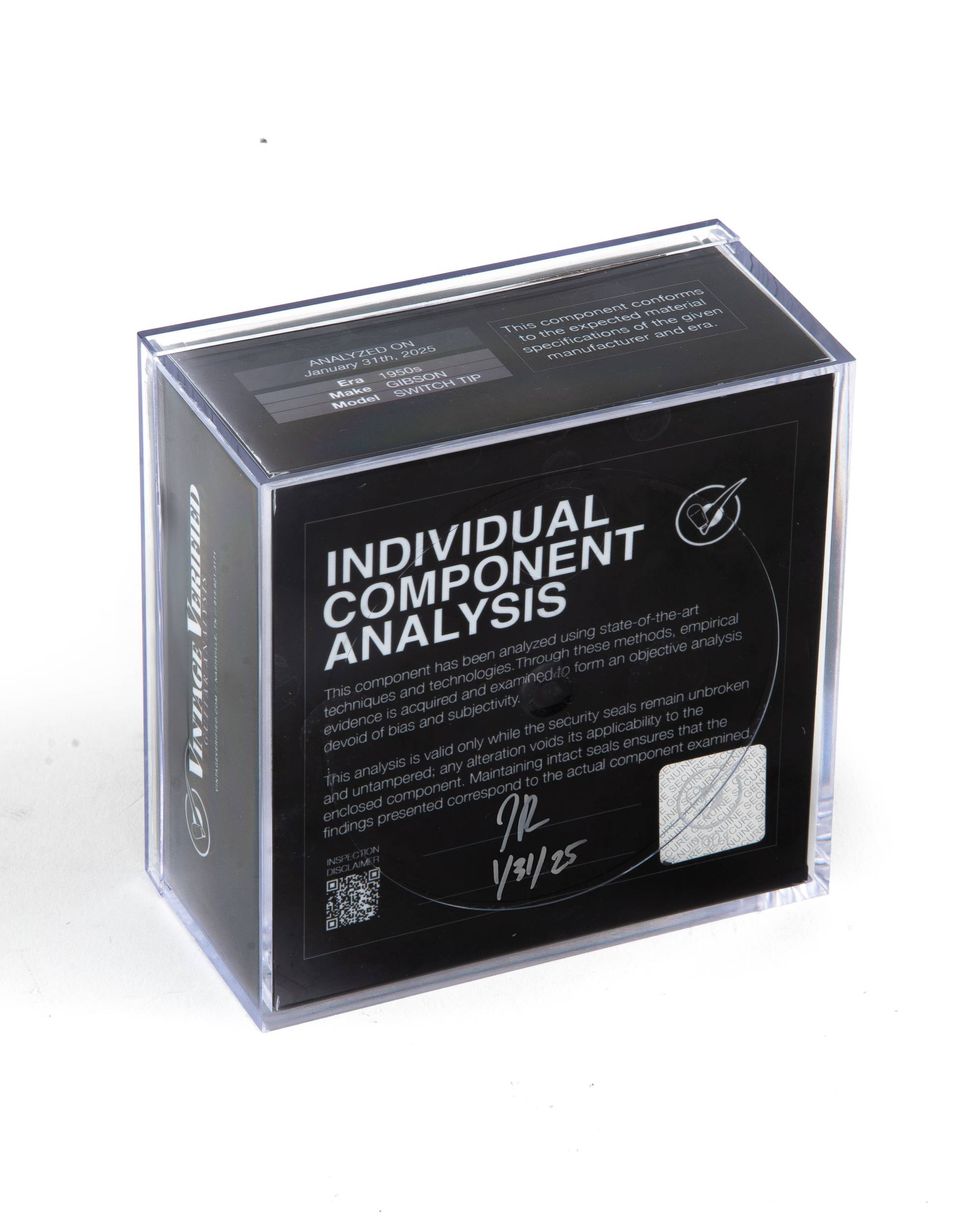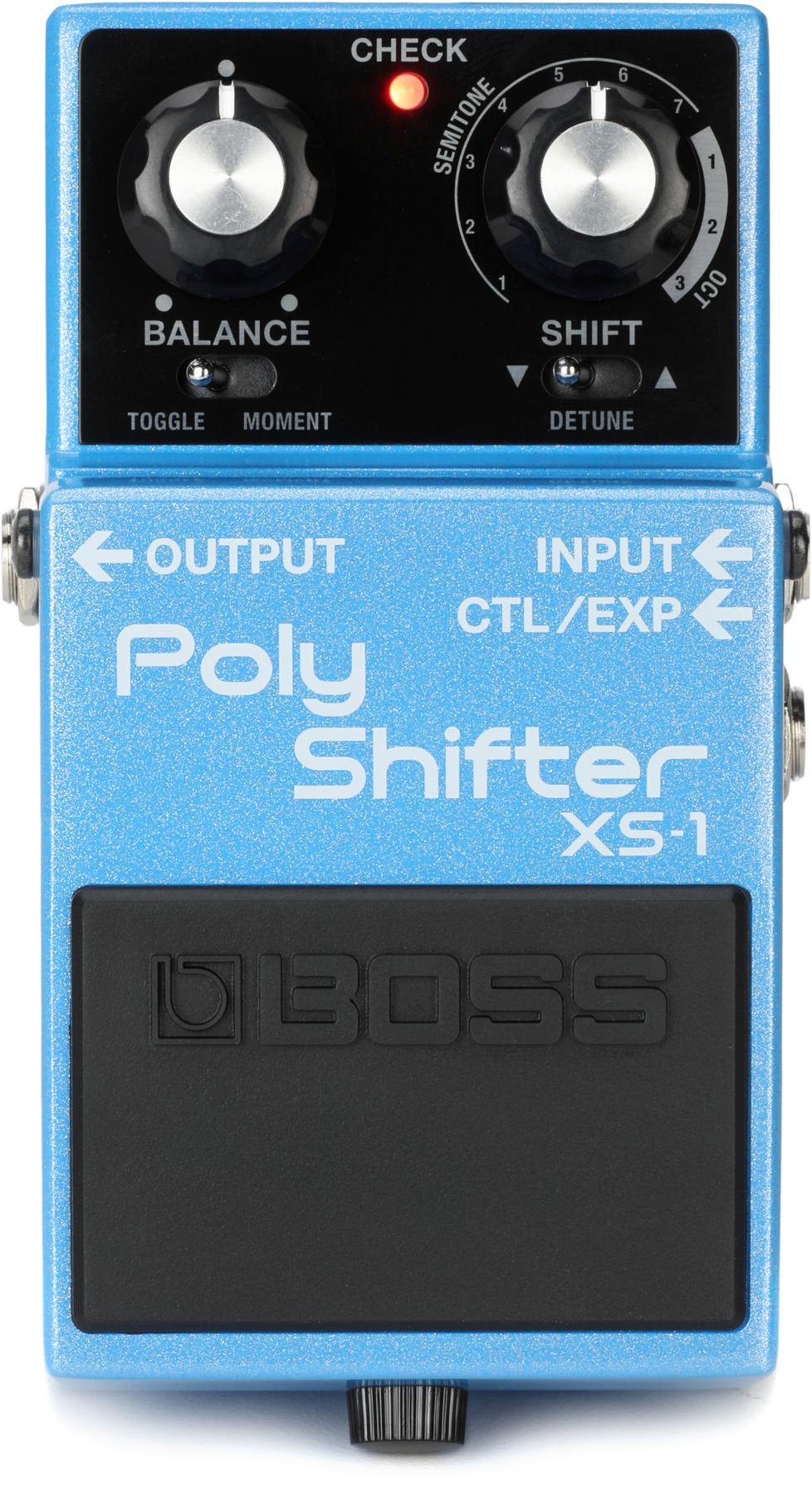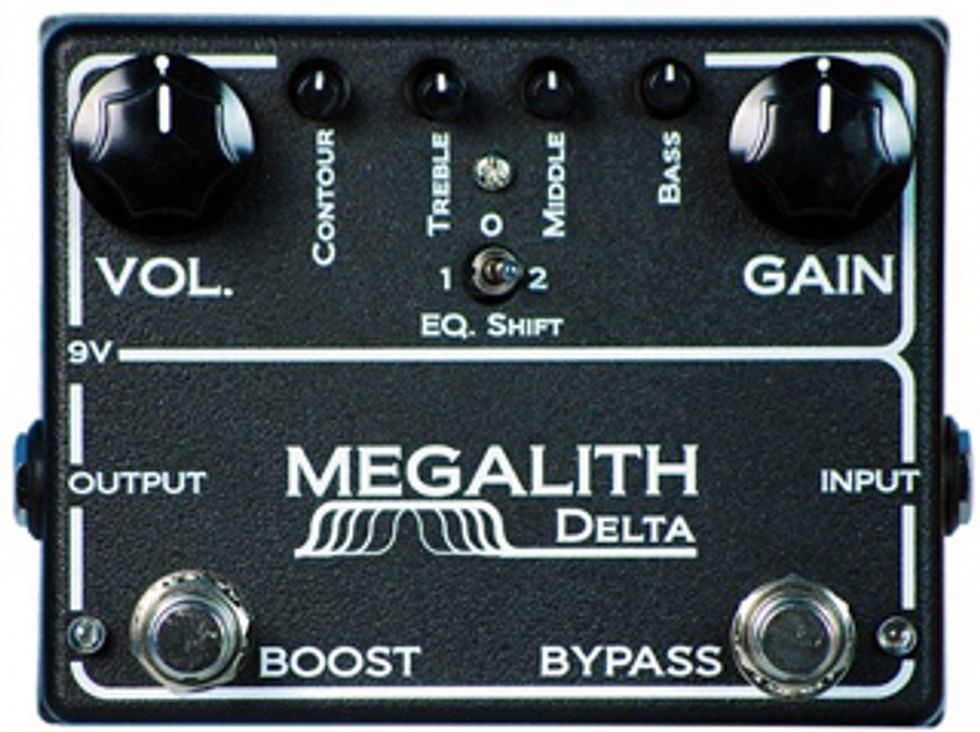
Although MI Audio pedals such as the Tube Zone and Crunch Box are praised by revered pros like Elliot Easton and Brett Garsed, the company’s distant Australian home base has given it a slightly under-the-radar status as a boutique manufacturer. At Winter NAMM 2008, MI introduced its first amp, the Revelation, and since then the company has released several more—including the Megalith Beta, a 180-watt fire-breathing metal beast. The new Megalith Delta is a solid-state version of the Megalith Beta’s preamp in pedal form.
Controlling the Beast
Cramming the essence of a full-fledged amp into a small stompbox is no easy feat, but MI Audio makes the process look simple with a relatively intuitive interface. There are six total knobs—volume and gain are the big ones, while contour, treble, middle, and bass are the smaller ones—a 3-way EQ-shift toggle, and boost and bypass footswitches. To access the battery, you have to unscrew four screws in the pedal’s rear corner. When we looked inside our review unit, the circuit board had the word “goop” splattered all over, along with snarky—though no-doubt warranted—commentary about copying pedal designs. Interestingly, there is no actual goop to obscure your view of the circuit.
Megalith to the Test
I tested the Megalith Delta through the clean channel of a Fender Super-Sonic combo using various guitars, including a Gibson Les Paul Standard, Canton Custom headless, and an Ernie Ball/Music Man Axis Sport. As I began my tests, I remembered initially having to spend a fair amount of time dialing in a satisfactory sound with the MI Audio Tube Zone pedal that I own, and I wondered whether that would be the case with the Megalith Delta—which has even more controls. However, it wasn’t hard to get up and running with this new pedal.
Unlike some pedals where adjusting the EQ doesn’t change the sound much, adjustments to the Megalith Delta’s treble, bass, and mid knobs elicit noticeable change and extreme flexibility. Just moving the treble from noon to 1 o’ clock brought about an undeniable brashness in the pedal’s voice. The 3-position EQ switch is also very helpful for shaping sound. Position 1 offers a British-style voicing, 0 adds low mids and a slight increase in the volume, and 2 reduces the mids and slightly lowers the volume (and, yes, the numbers are very curiously arranged in that order). The contour control can be used to fine-tune things as an alternate mid control—turn it all the way up increases the mids, and as you turn the contour down, the sound becomes more scooped.
Ratings
Pros:
Nearly every possible metal sound you could want in a compact package.
Cons:
Could use more versatility in lower gain settings.
Tones:
Ease of Use:
Build:
Value:
Street:
$249
MI Audio
mieffects.com
The boost footswitch activates the equivalent of the high-gain setting on the Megalith Beta amp, taking you from medium gain to the extreme upper regions of the gain zone with added treble and an extra bit of edge. For rhythm playing, the boost adds a tighter attack and a beefy bottom end that made my 1x12 combo feel like a raging stack. And for leads, stepping on the boost switch changed the feel from easy-to-play to something more like the guitar playing itself.
MI Audio founder Michael Ibrahim’s favorite guitarist is Allan Holdsworth, and many have described the company’s Tube Zone as a kind of Holdsworth-in-a-box pedal. While the Megalith Delta may not have been designed with that in mind, with the boost on, the sound is so gooey and liquid that it’s easy to channel the legato master’s serpentine lines with even a lethargic left hand. If you tend to pick more notes rather than rely on a wiggling left hand, you’ll enjoy the pedal’s note separation and clarity—it never seems to get mushy or inarticulate.
The Verdict
With the Megalith Delta, MI Audio did an admirable job of putting the heart and soul of their Megalith Beta amp into a compact pedal. At a street price of $250, it’s a little less than a tenth of the price of its full-sized sibling, and it can authoritatively cover just about any metal style—from classic to thrash—which is a very impressive accomplishment.








